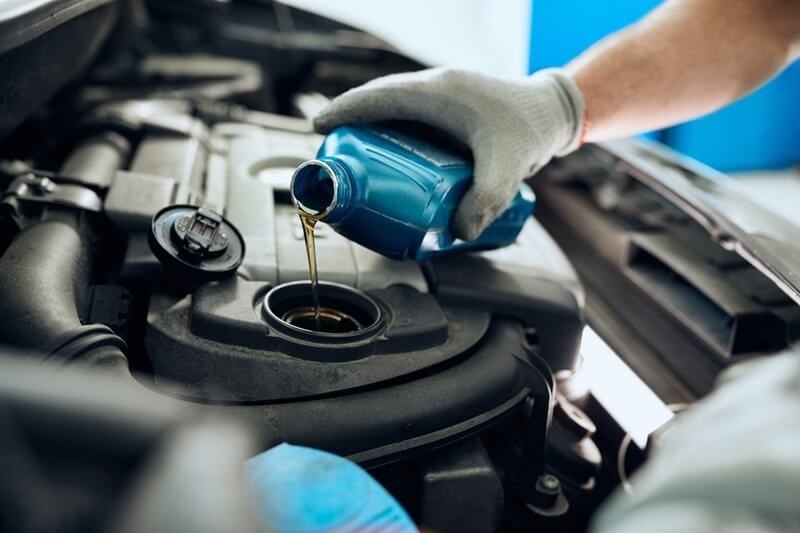
If you own a car, one question always comes up—how often should I change the oil in my car. Some say every 3,000 miles, others believe modern cars can go much longer. With so many opinions, it can get confusing. This guide clears things up in simple terms so you know when your car really needs an oil change.
The right oil change schedule depends on the type of car you drive, the oil you use, and your driving habits. For older cars, the standard advice was to change the engine oil every 3,000 miles or every three months. But today, things are different.
Modern engines and better oil technology have extended the interval. Many cars now need an oil change every 5,000 to 7,500 miles. If your car uses full synthetic oil, the interval can go up to 10,000 miles or even 12,000 miles in some cases.
The best rule is to check your car’s owner manual. Manufacturers test their engines and give you the most reliable advice. If you follow their recommendation, your car will stay in good shape and the engine will last longer.

Not all cars are the same as some vehicles need more frequent oil changes depending on conditions. If you drive mostly in city traffic, take many short trips, or tow heavy loads, you should change the oil more often. These situations put more stress on the engine and cause oil to break down faster.
On the other hand, if most of your driving is on highways at steady speeds, your oil will last longer. A car that is driven smoothly and maintained well can go several thousand miles without issues.
To be safe, many mechanics recommend sticking to the middle ground. Change the oil every 5,000 to 6,000 miles. It is a balance between not wasting money and not risking engine wear.
The car oil change frequency has shifted over the years. It is no longer a fixed number for every vehicle. Instead, it depends on a mix of factors which includes the following:
For daily use with conventional oil, the safe range is 3,000 to 5,000 miles. With synthetic oil, you can extend it to 7,500 to 10,000 miles. Always keep in mind that waiting too long can cause damage that costs far more than an oil change.
Some people delay oil changes because the car still runs fine. But the frequency of oil change matters more than it seems. Oil does more than lubricate. It keeps the engine cool, prevents rust, and carries away dirt and debris.
When oil breaks down, it cannot do its job properly. Old oil becomes thick and dirty, which makes the engine work harder. Over time, this increases fuel consumption and reduces performance. Worst of all, it can shorten the life of your engine.
That is why keeping a regular schedule is important. Even if you do not drive much, changing the oil at least once a year is a safe practice. Oil degrades with time, not just mileage.
If you are an experienced car owner, you will know that your car will itself show signs to highlight that it requires an oil change.
However, for first time car buyers, it can be difficult to identify these symptoms. Thus, they can check the following list to understand the signs that your car needs an oil change.
Fresh oil looks clear and amber in color. However, when the oil turns black in colour and becomes gritty, you should understand that it is one of the first signs you need an oil change..
Oil reduces the friction, so when it gets old, you may hear knocking or louder engine sounds.
If you smell oil while driving, it may mean a leak or overheated oil.
Most cars have an oil change or check engine light. You should never ignore these signals as it can damage your car’s long-term durability massively.
Check if blue or gray smoke is coming out from the exhaust. This is one of the common ways that experienced car owners use to find out if the oil is burning or not.
If you identify any of these signs in your car, you should not wait for your next scheduled maintenance service. Get the oil changed right away to prevent your car from getting damaged.
If you want to do the job yourself, you may wonder what do I need for an oil change. Here are the basic items:
The process is simple. Drain the old oil, replace the filter, and add new oil. Make sure to dispose of old oil properly at a recycling center.
For many people, visiting a mechanic is easier. It saves time and ensures the oil is changed correctly. Professional oil change services also include a quick check of other fluids and filters.
Oil is the lifeblood of your car. Without it, the engine cannot survive. When you regularly change engine oil, it keeps the can running smoothly and prevents costly repairs.
A well-maintained car not only drives better but also holds its value longer. Skipping oil changes might save money in the short term, but it almost always leads to bigger bills later.
Think of an oil change as cheap insurance. It is one of the simplest and most affordable ways to protect your car.
If you are still thinking, how often should I change the oil in my car. The solution to this depends on your car’s needs, the oil it uses, and how you drive it. For most people, every driving around 5,000 to 7,500 miles without changing the oil is normal. Synthetic oil allows for longer intervals, while tough driving conditions call for shorter ones.
Lastly, if you are someone who loves their car, taking care of it by changing the engine oil can improve its lifespan and performance massively.
This content was created by AI